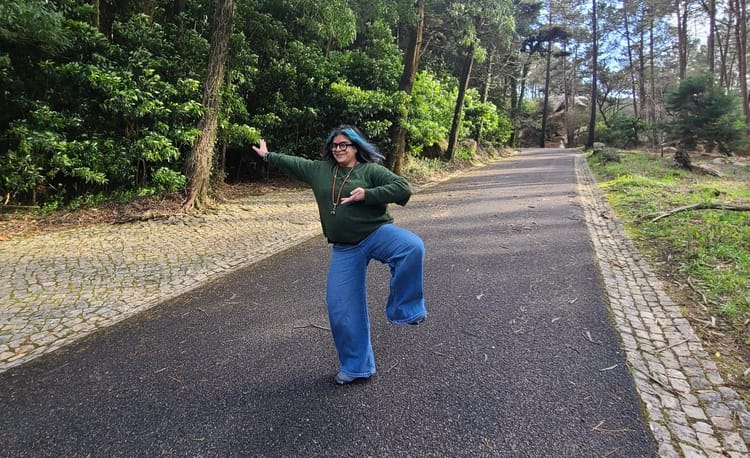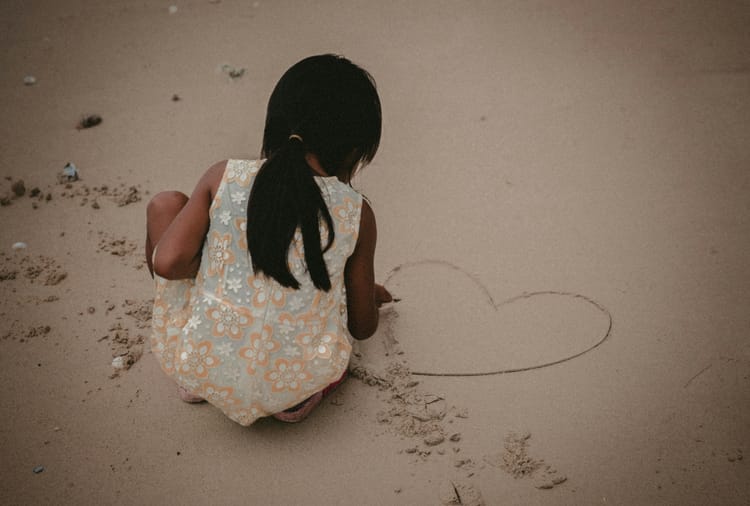I'm in the best shape of my life
A few days ago, a client lamented to me about how disorganized she has been lately with her eating and exercise schedule. She reflected out loud that a few years ago she was in the best shape of her life: She used to eat healthily and exercise daily. She prioritized her health.
Before I could even say anything in response, she added, “But I was tired all the time. I was exhausted, and low-key depressed.” I was not surprised. I asked her to reflect on why she considered that as the best shape of her life. She agreed that it was a skewed perspective on health.
This happened to me too. In 2017, I was diagnosed with prediabetes and it broke my heart. Diabetes and dementia are correlated. As a person with a significant risk of developing dementia in their 40s, I was panicked. I got on a regiment that my healthcare providers and I felt was warranted. I dropped all grains, sugars, and alcohol. I did rigorous power yoga daily. I dropped a bunch of weight, and in came the compliments about how fabulous and fit I looked. I felt great. At least initially.
A few months later, I called my aunt in tears. She’s a doctor based in Iowa, and I shared that I was having suicidal ideation. I had thoughts of crashing my car into a tree. She suspected it was my hormones and said that I could be a candidate for PMDD. But I knew it was my diet. This had happened to me once before when I was 19. A boy I used to date casually remarked that I had put on a bit of weight and I went on a rampage. I survived on cigarettes and black coffee. I nibbled on food. I felt great. And then crashed. My only suicide attempt came a few months into this sort of eating.
The irony: depression has a high correlation with dementia as well. Doomed if I did, and doomed if I didn’t.
We are not separate entities. Our mental and physical health are not separate. They do not exist in a silo. They are impacted by what is going on in our individual lives and in society. Historical traumas have an impact on people of certain races. E.g. South Asians are prone to heart disease because our bodies are “starvation-adapted” having survived 31 famines and droughts in the 18th - 20th centuries under British colonization.
Today, we are used to assigning responsibility for health to the individual. We de-contextualize everything related to the situation. But context is everything. For instance, my client was coming out of an abusive relationship at the time when she was exercising daily and eating in a particular manner. It makes sense because her nervous system was still carrying stress hormones, and she had a bunch of extra energy that needed to be worked out from her system. Her concurrent experience of depression and fatigue also makes sense as the trauma and hypervigilance can be tiring on one’s emotional self. In our work together, we have unpacked that she carries within her many mindsets of her mother and grandmother that made them unhappy as well.
Our work has always been to heal. Not just our own minds and bodies, but the wounds and traumas that run in our bloodline. Rectifying my diet both times made me put on weight, and it also improved my mood drastically. At almost 42, I am the biggest I have ever been, and I am at my happiest.
I have worked hard on my relationship with my body and food. My sugars are still skewed. I do my best, and I also understand the basic nature of my body, all bodies, is to change, decay, be prone to sickness and disability, and eventually die. Our bodies are impermanent.
Change is hard. I experience deep grief and fear when my body is sick. And along with that, I feel a sense of okayness, knowing that I did not bring this upon myself. It is the nature of my body to be sick, to age.
I used to look upon my body as a problem to be fixed. My journey with the Dhamma, specifically with Vipassana helped me balance out how I looked at my body. My body is a companion. I am in this body. I am not this body.
This perspective can be applied to almost everything. Let’s try this:
I am in this relationship. I am not this relationship.
I have a skill. I am not this skill.
When we remember these little truths, we walk with awareness. We work through our fear and attachments on a daily basis. Little by little, we set ourselves free.
I am at that exact age when my mother began to show symptoms of dementia. Today, I woke up to a birdsong on a snowy day. The coexistence of many things at once - my grief and gratitude ground me.
I might be in the best shape of my life.


Member discussion